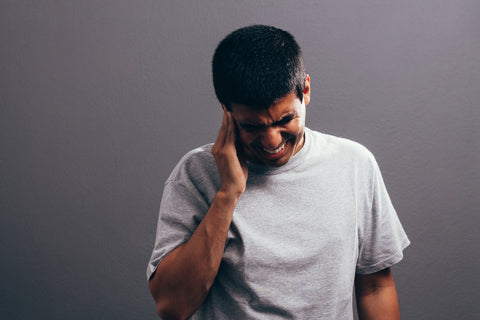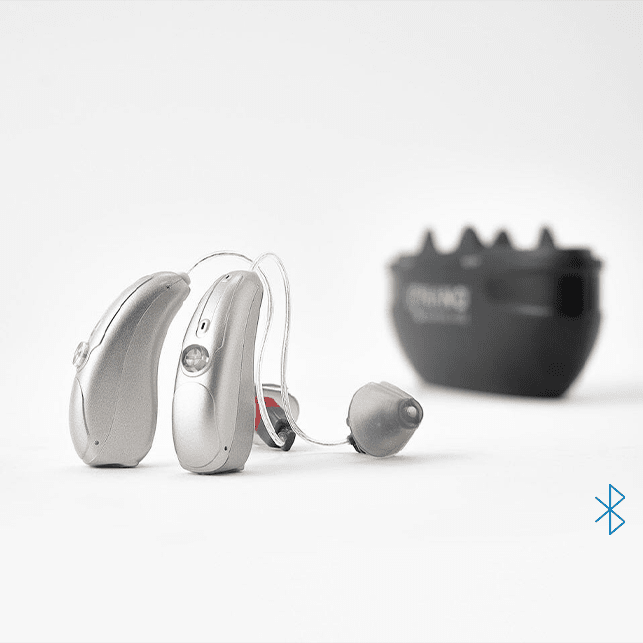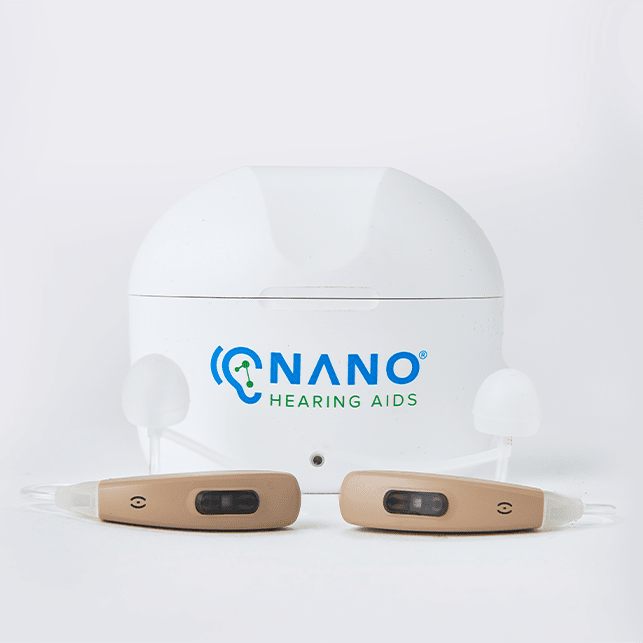All of us have experienced some weird sounds or sensations within our ears at some point in our lives. These sounds can include muffled hearing, hissing, buzzing, or even ringing and crackling within our ears.
Of the above described sounds, the ones we ought to pay the most attention to are the cracklings or popping sounds within our ears. A whole range of factors and determinants can cause this kind of noise within our ear canals. Let us first take a look at some of the more common reasons for crackling in the ears.

What Causes Crackling in the Ear
Dysfunction of the Eustachian Tube
This particular tube in our ears is a narrow passageway responsible for connecting our middle ear to our throats. We have one in each of our ears.
The primary function of these tubes is to stop air pressure and fluid from forming within the ears. Proper air pressure must be maintained so that the eardrum does not have any chance of bulging improperly.
Dysfunction of the Eustachian Tube is a pretty common problem. The stats show that about 4 percent of the adult population in the world suffers from this condition.

The main ways in which the tubes can get blocked is due to the following reasons:
Ménière’s disease
Meniere's Disease commonly affects only the inner parts of the ear and causes people to feel dizzy. This disorder can affect just about anyone, but the age group most at risk is the 20-50 demographic.
If you develop Meniere’s Disease then you may notice the following symptoms:

Muscle disorders, Temporomandibular joint Disorders
TMJ, or Temporomandibular joint and muscle disorders, will cause a lot of pain and also dysfunction of the joints in our jaws. It can cause crackling sound in ear when moving jaw. This particular disorder reportedly affects about 10 million people in this country alone. The symptoms of this disorder have been listed below.
What are the treatment options?
How you will need to treat the crackling sounds you hear in your ears, will depend entirely on the cause of the sound. Here are some treatments that doctors will recommend in some cases.
Antibiotics
To treat any infection in the ears.
Earwax removal
Get it removed with the help of a specialist if there is too much of it.
Ear Tube Placement
Doctors recommend that you get help to equalize the pressure within your middle ear. This will also help drain any unwanted fluids.
Prescription medications
They may recommend getting tricyclic antidepressants or they may also recommend muscle relaxants. This is to get rid of any pain that may be there due to TMJ disorders.
Surgery
Applicable when the regular methods of dealing with the disease do not help.
Hearing Aids
Hearing aids may also be a solution for your problems. This will work if the underlying issue of you hearing crackling sounds is some hearing loss.
The recommended course of action here is to take a hearing test from a professional audiologist. If the main reason you hear crackling sounds is hearing loss, you need to get your ears checked immediately. It would be highly unwise to wait for too long before you take the test. If you wait too long, the condition may worsen and the hearing loss may get even worse.
When to decide to visit a doctor?
You should immediately see your doctor for the crackling sounds that you hear if the following things apply to you:
The doctor will most likely take the medical history and perform a thorough physical examination to diagnose what you have properly. The physical examination will most likely check your throat, ears, and also jaw.
How to Stop Crackling In The Ears
One thing that can be done if the crackling sound in your ears is not too severe and you do not have any different symptoms, some natural home remedies may help you. If you see that the crackling sound is not getting better or worse, immediately consult your doctor.
Home treatments
Popping the Ears. You can easily unclog your ears and help with equalizing the pressure inside your middle ear by just popping your ears
.
Nasal Irrigation. This is also known as a type of sinus flush. When you rinse with saltwater, it will help you eliminate of any extra mucus in your nose and your sinuses.
Earwax removal. As we have discussed before, earwax buildup is often the cause of those crackling sounds. You can soften and remove earwax by using mineral oil, some OTC ear drops, etc.
If you have determined that the cause of your hearing crackling sounds is some form of hearing loss, then you cannot go wrong with hearing aids.
To ensure that you have the best possible experience with hearing aids, you mustn't get just any hearing aid. Also, it is not wise to skimp and be cheap when you are getting your hearing aids.
Remember the importance of getting a device that is high-quality and is well-made. To do this and to find out which hearing aids will suit you the best, make sure that you do proper research on the topic.
There is a wide range of hearing aid devices available in the market and it may seem a bit overwhelming to have to choose just one. For this exact reason that we have compiled a buyer’s guide for when you decide to purchase a hearing aid.
Buyer’s Guide
The following things are essential if you want to purchase a hearing aid that will be able to serve your particular needs:

Takeaway
While a temporary crackling sound in the ears is not anything to worry about, if the sound persists it is important to take further measures. There may be a wide range of causes behind these crunching sounds in the ear, as we have discussed above. Some of the more common causes are earwax buildup, dysfunction in the eustachian tube, or maybe some type of TMJ disorder.
It is also important to note that these sounds may appear because of wearing an improperly functioning hearing aid. The good news is that, if the leading cause of these sounds is an underlying hearing loss issue, that issue can be mitigated to a large extent by using a hearing aid.
Frequently Asked Questions:
It is possible to unblock Eustachian tubes with a relatively easy exercise and sometimes it even gets fixed on its own. Just close your mouth and hold the nose, give a gentle blow like when you blow your nose. This should get the job done and often yawning or chewing gum also helps.




